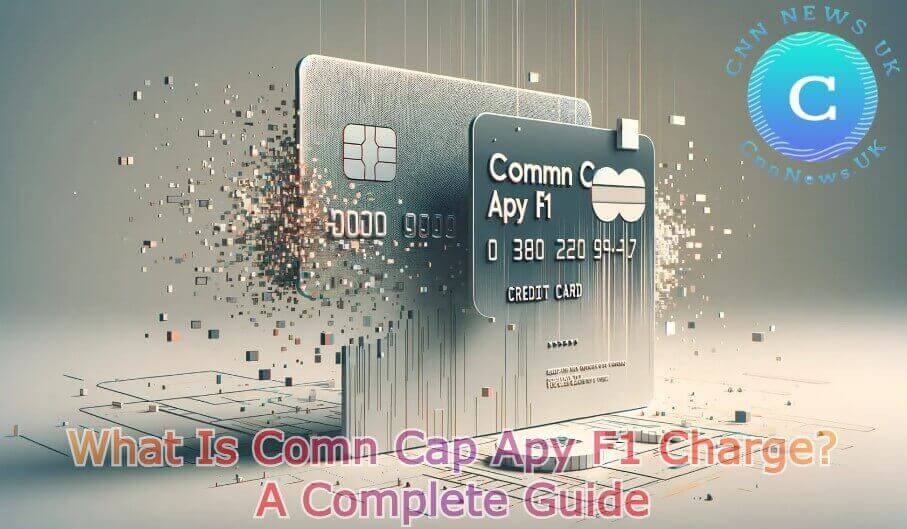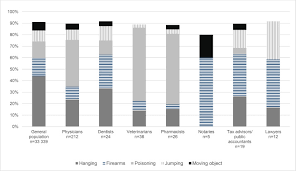Introduction:
If you’re having trouble finding a specific transaction on your credit card statement, don’t worry. We’re here to help you understand any charges you may not recognize.
Recently, some people have noticed a charge on their statements labeled “Ach Comn Cap Apy F1.” What is this charge, and why does it appear as “Comn Cap Apy F1” on their statements?
“Ach Comn Cap Apy F1” is a code used by Comenity Bank to indicate an automatic payment. We’ve looked into why this charge is on your statement. Here’s what we found:
What Is Comn Cap Apy F1 Charge?
If you see “ACH-COMN-CAP-APY-F1” on your bank statement, it’s not as complicated as it seems. Here’s what it means:
ACH: This is a network that banks use to move money electronically.
COMN: It’s short for Comenity, a bank.
CAP: Also short for Comenity, a bank.
APY: This is AutoPay, a way to automatically pay for things from your bank account.
F1: This is a code for a specific credit card or store. For example, for Comenity Bank, F1 is used for the new Ulta credit card.
“Ach-Comn-Cap-Apy-f1” means that money was automatically transferred from your bank account to pay for something. This payment was made to a credit card issued by Comenity Capital Bank, and the “F1” part could be a specific store or credit card, like the new Ulta credit card.
Understanding these terms can help you keep track of your money and make sure all the charges on your bank statement are correct. It’s important to know how Comenity Capital Bank is involved in your credit card payments, so stay tuned for more information.
Why “Comn Cap Apy F1” Charges Appear On the Bank Statement?
“Ach-Comn-Cap-Apy-F1” is typically a transaction related to moving money electronically between banks in the US. This network is often used for things like direct deposits, paying bills, or transferring money between accounts.
The “F1” part of this could be a specific code or number for the transaction. This could be related to a common capital or investment account, which might have an annual percentage yield (APY). This APY is the interest rate you earn on the money you have in that account.
If you see this on your bank statement, it’s a good idea to check any communication or documents from your bank to understand more about the transaction.
What Is Comn Cap Apy F1 Auto Pay?
“Comn Cap Apy F1” in the context of “auto pay” refers to an automated payment made through the Automated Clearing House (ACH) network to a credit card issued by Comenity Capital Bank.
This could be a recurring payment, such as a subscription or utility bill, automatically deducted from your bank account or credit card regularly. “F1” might be a specific code or reference number associated with the transaction. It is important to review your bank statements regularly to ensure that all charges are accurate and authorized.
If you have any questions or concerns about “Comn Cap Apy F1” charges, you can contact your bank or credit card issuer for more information.
Implications For Financial Comn Cap Apy F1 Charge
The “Comn Cap Apy F1” charge on your bank statement implies a recurring or one-time transaction made through the Automated Clearing House network. This could be a subscription payment, utility bill, or any other purchase using your credit card issued by Comenity Capital Bank. Understanding these charges is essential for effective financial management and budgeting.
Common Reasons for Comn Cap Apy F1 Charges
Here are some common reasons for Comn Cap Apy F1 charges:
- Recurring Payments: Many Comenity Capital Bank credit card users set up automatic payments for recurring expenses like monthly subscriptions or utility bills. These payments are processed through the Automated Clearing House (ACH) network and may appear on your bank statement as “Comn Cap Apy F1.”
- One-Time Purchases: If you’ve made a one-time purchase using your Comenity Capital Bank credit card, the charge may show up on your bank statement as “Comn Cap Apy F1.”
- Interest Charges: If you carry a balance on your credit card, you may incur interest charges on your purchases. These interest charges will be reflected in your bank statement as part of the “Comn Cap Apy F1” transaction.
- Cash Advances: If you’ve taken out a cash advance using your credit card, the transaction will be processed through the ACH network and may appear on your bank statement as “Comn Cap Apy F1.”
- Balance Transfers: If you’ve transferred a balance from another credit card to your Comenity Capital Bank credit card, the transaction will be processed through the ACH network and may appear on your bank statement as “Comn Cap Apy F1.”
- Overdraft Protection: If you’ve opted for overdraft protection on your Comenity Capital Bank credit card, any overdrafts will be covered by a cash advance transaction, which will be processed through the ACH network and may appear on your bank statement as “Comn Cap Apy F1.”
How to Contact Comenity Capital Bank for More Information?
Suppose you need more information about a Comn Cap Apy F1 charge on your bank statement or have any other inquiries about your Comenity Capital Bank credit card. In that case, you can contact the bank’s customer service team. Here’s how to reach them:
Phone: You can call Comenity Capital Bank’s customer service at (855) 796-9632. Be sure to have your account information ready when you call.
Online: Visit the Comenity Capital Bank website and log in to your account. From there, you can send a secure message to the bank’s customer service team.
Conclusion:
In conclusion, “Comn Cap Apy F1” charges on your bank statement typically represent automated payments made through the Automated Clearing House (ACH) network to a credit card issued by Comenity Capital Bank.
These charges could be recurring payments, one-time purchases, interest charges, cash advances, balance transfers, or overdraft protection.
It’s important to review your bank statements regularly to ensure that all charges are accurate and authorized.
If you have any questions or concerns about “Comn Cap Apy F1” charges, you can contact your bank or credit card issuer for more information. Understanding these charges is essential for effective financial management and budgeting.
FAQ’s
1. What is a “Comn Cap Apy F1” charge on my bank statement?
“Comn Cap Apy F1” refers to an automated payment made through the Automated Clearing House (ACH) network to a credit card issued by Comenity Capital Bank. This could be for a recurring payment, one-time purchase, interest charge, cash advance, balance transfer, or overdraft protection.
2. Why does “Comn Cap Apy F1” appear on my bank statement?
The “Comn Cap Apy F1” charge is a code used by Comenity Capital Bank to indicate an automatic payment. It could be for a subscription, utility bill, or any other purchase using your credit card issued by Comenity Capital Bank.
3. How do I know if a “Comn Cap Apy F1” charge is legitimate?
Review your bank statements regularly to ensure that all charges are accurate and authorized. If you have any concerns about a “Comn Cap Apy F1” charge, contact your bank or credit card issuer for more information.
4. What should I do if I don’t recognize a “Comn Cap Apy F1” charge?
If you don’t recognize a “Comn Cap Apy F1” charge on your bank statement, it’s important to investigate further. Contact your bank or credit card issuer to inquire about the charge and determine if it is legitimate.
5. Can I dispute a “Comn Cap Apy F1” charge?
Yes, if you believe a “Comn Cap Apy F1” charge is incorrect or unauthorized, you can dispute it with your bank or credit card issuer. Provide any relevant information or documentation to support your claim.
6. How can I avoid “Comn Cap Apy F1” charges?
To avoid “Comn Cap Apy F1” charges, review your bank statements regularly, and keep track of your spending. Set up alerts for large or unusual transactions, and be cautious when providing your credit card information online.
7. What should I do if I suspect fraud related to “Comn Cap Apy F1” charges?
If you suspect fraud related to “Comn Cap Apy F1” charges, contact your bank or credit card issuer immediately to report the issue and request a refund. Provide any relevant information or documentation to support your claim.
8. How can I contact Comenity Capital Bank for more information about “Comn Cap Apy F1” charges?
You can contact Comenity Capital Bank’s customer service team by phone, online, mail, or in person. Be sure to have your account information ready when you call or log in to your account online.




